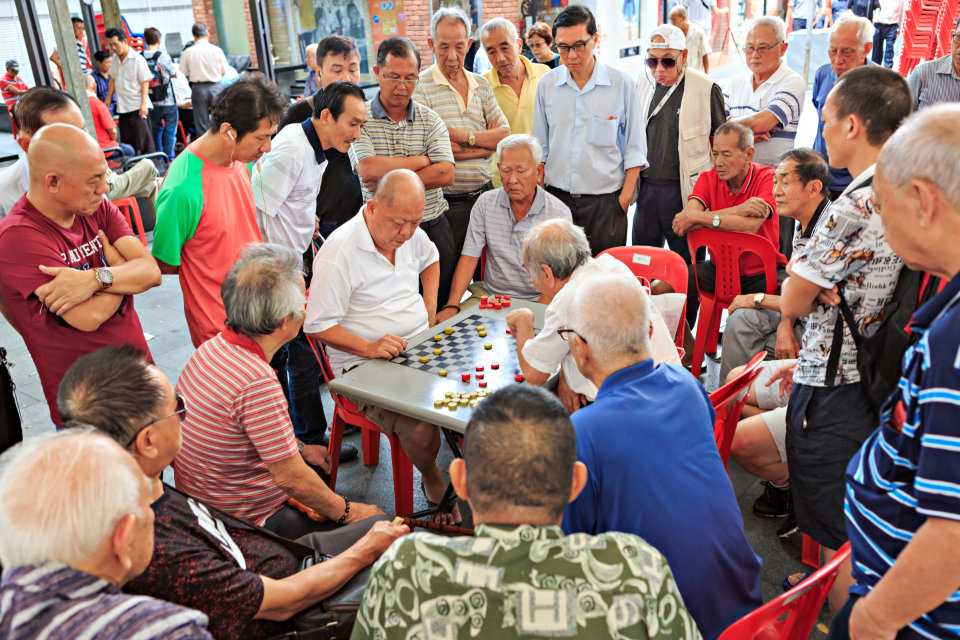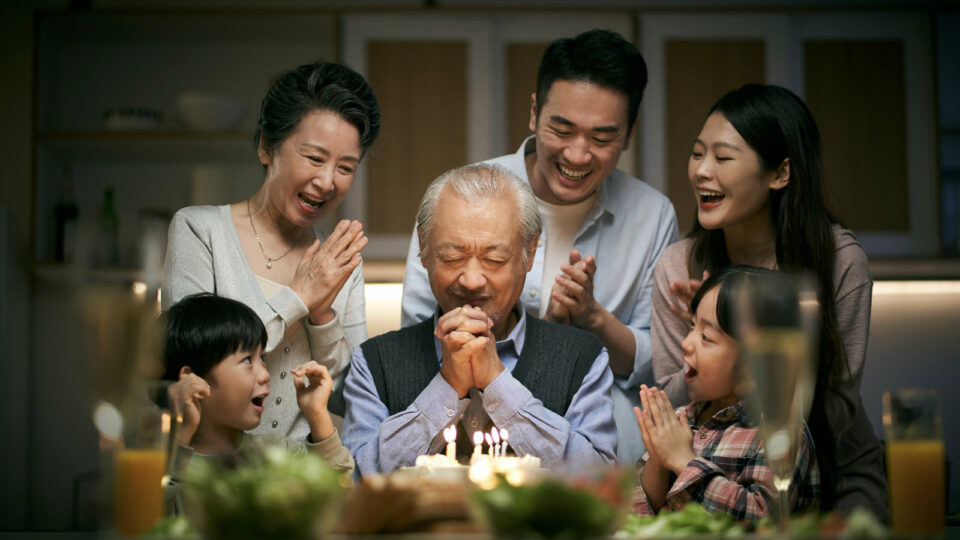Singapore shines as a modern epitome of health and longevity. As the city-state thrives economically, the quest to live longer in Singapore remains a common pursuit among its diverse populace.
Recent stories of centenarians from across the globe offer a beacon of hope and a wellspring of curiosity. What are the secrets to living longer, and how can Singaporeans embrace these timeless wisdoms amidst the bustling rhythm of the Lion City?
Embracing a lifestyle filled with balance and wellness, the dream to live longer in Singapore is not just a distant hope but a reachable reality.
Table of Contents
Unveiling Global Centenarians
The narrative of Maria Branyas, a 116-year-old Spaniard, reverberates across continents. Her life philosophy emphasizes good humor, a positive outlook, and the avoidance of toxic relationships, a stark contrast to the stringent routines of diets and ice baths often embraced by those chasing the fountain of youth.
Branyas underscores the importance of cherishing connections with family and friends, embracing tranquility, and nurturing a harmonious rapport with nature, suggesting a simplistic blueprint to a longer life.
Similarly, Jeanne Calment, who lived to the ripe age of 122, advocated a stress-free life filled with daily doses of humor. The tales of Branyas and Calment hint at a life well-lived, devoid of the modern-day hustle and overindulgence in anti-aging regimes.
Singapore: A Conducive Environment for Longevity
Nestled amidst a bustling urban landscape, Singapore uniquely intertwines city living with natural retreats, embodying the concept of a city in nature. The lush green expanses of the Botanic Gardens and East Coast Park stand as serene havens where individuals can nurture a connection with nature, aligning with Branyas’ principle of environmental harmony.
Furthermore, traditional Asian values promoting close-knit family bonds and community living are deeply ingrained in the societal fabric of Singapore. These values resonate well with the philosophies of centenarians like Branyas, highlighting a symbiotic blend of modern urban living and timeless principles conducive to longevity.
This fusion of nature within a city landscape, alongside a community-oriented culture, positions Singapore as a conducive environment for those seeking to live longer amidst a balance of modernity and natural tranquility.
Singaporean Supercentenarians: A Closer Look
In the realm of longevity, every region has its own tales of individuals who have defied the odds of time. Singapore too has its share of stories that not only inspire but also intrigue many about the secrets of living a long, fulfilling life.
While a verified list of supercentenarians from Singapore remains elusive, certain notable individuals have left an indelible mark on the nation’s heart with their extraordinary life spans and contributions.
Madam Fadilah Noor Abbe, who passed away in 2012 at the venerable age of 115, stands as a significant figure in the tapestry of Singapore’s longevity narrative. Her life span is remarkable and probably marks her as the oldest Singaporean who ever lived.
Her story is not just a testimony to the potential for longevity in Singapore, but also a reflection of the rich life experiences and historical transitions that she witnessed over a century.
Following closely is the narrative of Ms. Teresa Hsu, a revered figure whose life journey extended to 113 years before she passed away two years ago. Fondly nicknamed Singapore’s Mother Teresa, her life was a blend of longevity and altruism.
Even in her advanced age, Ms. Hsu was a beacon of compassion, distributing food and money to the less fortunate, right up to her last days. Her legacy continues to resonate, embodying the spirit of community service and humanitarianism.
The tales of Madam Fadilah Noor Abbe and Ms. Teresa Hsu offer more than just a glimpse into the realm of supercentenarians in Singapore; they provide a narrative of lives well-lived, enriched by community engagement, altruism, and a sense of purpose.
The longevity journey of each individual indeed intertwines genetic, environmental, and lifestyle factors, painting a complex yet hopeful picture of what contributes to a long, meaningful life.
The stories of these remarkable individuals not only ignite curiosity but also offer a source of inspiration for Singaporeans.
As the nation advances in healthcare and quality of life, prominently through the Healthier SG initiative, the tales of Madam Fadilah and Ms. Hsu serve as poignant reminders of the potential for longevity within the Singaporean landscape, coupled with a spirit of community and humanitarianism.

Why Women Usually Live Longer Than Men
The phenomenon of women outliving men is a notable trend observed globally, and the underlying reasons are rooted in a blend of biological, social, and lifestyle factors.
Biological Factors:
- Hormonal Differences: Women produce estrogen, a hormone that has been linked to increased longevity. Estrogen can help in maintaining healthier blood vessels and potentially reducing the risk of heart disease, which is a leading cause of mortality.
- Genetic Advantages: Women have two X chromosomes, which provide a genetic advantage when it comes to certain inheritable diseases. If a gene on one X chromosome is faulty, the other X chromosome can often compensate.
Social Factors:
- Health-Conscious Behavior: Studies have shown that women are generally more health-conscious and are more likely to seek medical attention when needed compared to men. This proactive approach towards health can contribute to early detection and treatment of ailments.
- Social Connections: Women often have stronger social networks and emotional support systems which contribute to mental well-being, a critical factor for longevity.
Lifestyle Factors:
- Lower Risk Behaviors: Men are statistically more likely to engage in riskier behaviors such as smoking, excessive alcohol consumption, and avoiding regular medical check-ups, which can lead to a host of health issues over time.
Psychological Factors:
- Coping Mechanisms: Women tend to have better coping mechanisms when dealing with stress and life adversities. Their ability to express emotions and seek social support helps in maintaining mental and emotional health, which in turn positively impacts physical health.
Environmental Factors:
- Occupational Hazards: Historically, men have been more likely to work in hazardous environments, exposing them to a range of health risks that can shorten their lifespan.
The intersectionality of these factors provides a multidimensional understanding of gender differences in longevity. However, it’s important to note that individual lifestyle choices and healthcare access play a significant role in determining one’s lifespan, regardless of gender.
The insights into gender-based longevity differences offer a platform for further research and public health interventions aimed at addressing the specific health needs and challenges faced by both genders.
By fostering a deeper understanding of these dynamics, societies can work towards creating supportive environments and health promotion strategies that cater to the distinct needs of men and women, contributing to improved quality of life and increased longevity for all.
Tips on How to Live Longer in Singapore
The pathway to longevity doesn’t necessitate grandiose actions but embraces a holistic approach:
- Maintain an Active Lifestyle: Regular physical activities like walking, jogging, or participating in virtual races through platforms like Spacebib keep the body agile and the heart healthy.
- Nourish Strong Social Connections: Cherish relationships with family and friends, for a support system contributes to emotional well-being.
- Engage with Nature: Take time to enjoy Singapore’s green landscapes, which provide a natural antidote to urban stress.
- Adopt a Balanced Diet: Incorporate a variety of nutrients in your diet to fuel your body adequately.
- Practice Stress Management: Mindfulness practices like meditation and yoga can be instrumental in maintaining a balanced life.
- Avoid Toxic Relationships: Surround yourself with positive individuals who uplift rather than drain your energy.
- Continue Learning: Embrace lifelong learning to keep the mind sharp and the soul curious.
- Participate in Community Activities: Engage in communal events to foster a sense of belonging and purpose.
- Practice Preventive Healthcare: Besides regular check-ups, getting vaccinated, and following up on recommended screenings can help catch and address health issues early.
- Maintain a Positive Outlook: Cultivating a positive outlook on life and maintaining a sense of humor can significantly contribute to your overall well-being and longevity. The way you perceive and react to life’s challenges can have a direct impact on your health.
These tips can assist individuals in their pursuit to live longer in Singapore by promoting a holistic approach to well-being that encompasses physical, mental, and social health.
The Art to Live Longer in Singapore
The quest to live longer healthily in Singapore transcends beyond the realm of medical advancements, beckoning a harmonious blend of traditional values, a supportive community, and an individual’s commitment to a wholesome lifestyle.
As the tales of global centenarians inspire, the journey to longevity is a shared endeavor, enriching not only the tapestry of one’s life but contributing to a resilient, joyful community amidst the vibrant heart of Asia.
What are the key factors that contribute to living longer in Singapore?
The key factors include a world-class healthcare system, a clean and green environment, active lifestyle promotion through various national initiatives such as Healthier SG, and a strong emphasis on family and community support.
Is it easy to live until 100 years old in Singapore?
While living until 100 years old is influenced by a variety of factors including genetics, lifestyle, and healthcare, Singapore provides a conducive environment with its top-tier healthcare system, active lifestyle promotion, and well-maintained urban spaces. These factors contribute to enhancing the potential to live longer in Singapore, although individual experiences of reaching 100 years old may vary.
What lifestyle changes can individuals make to live longer in Singapore?
Embracing a balanced diet, regular exercise, stress management, and preventive health check-ups are among the lifestyle changes individuals can adopt to live longer in Singapore.
How does the healthcare system in Singapore support individuals to live longer?
Singapore’s healthcare system provides comprehensive medical care, preventive health programs, and early disease detection, all of which contribute to enabling individuals to live longer in Singapore.





